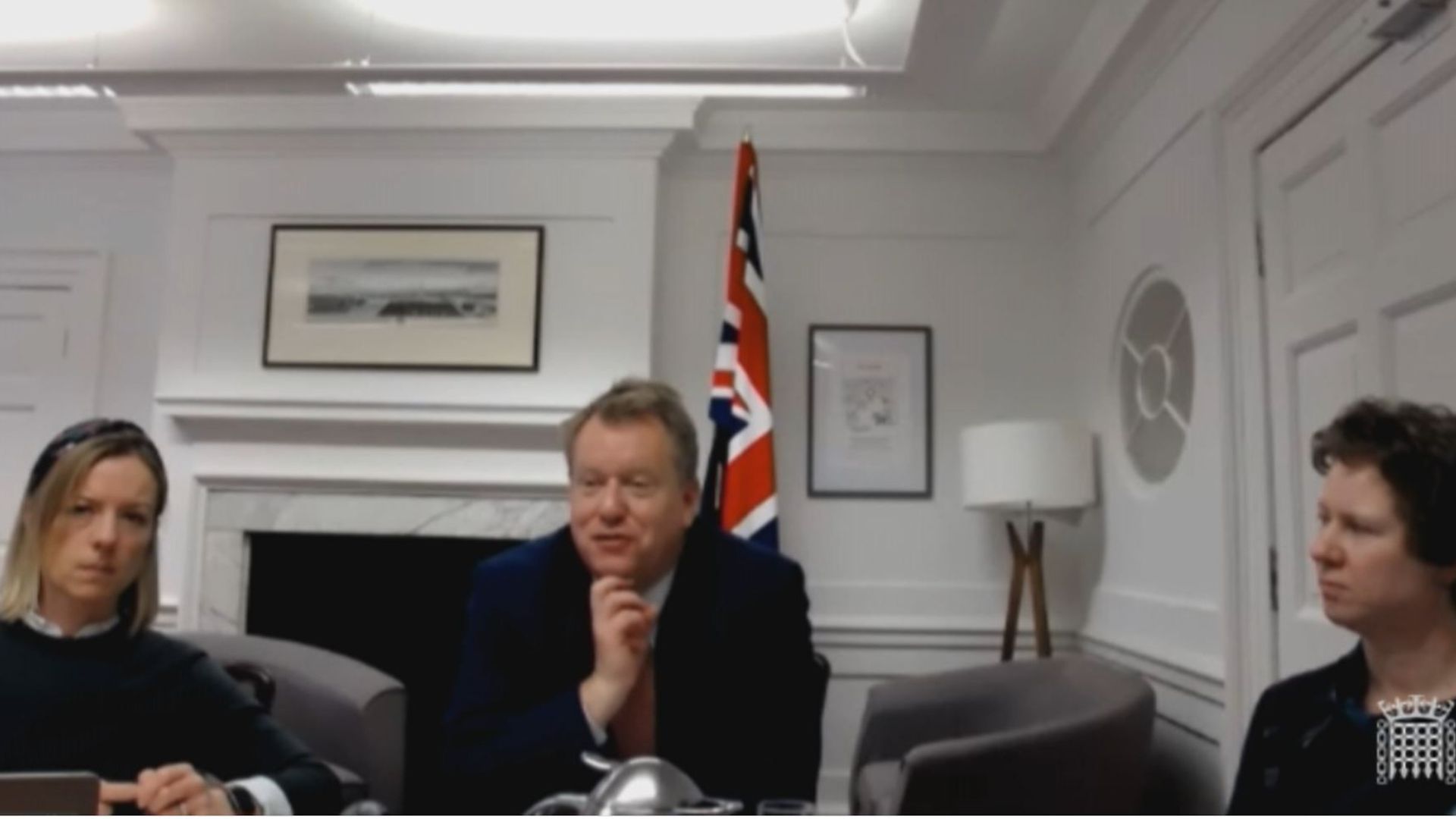
The UK’s relationship with the European Union after Brexit could remain “bumpy” for some time, the government admitted.
Brexit minister Lord Frost said he wanted the situation with Brussels to improve but highlighted ongoing problems with Northern Ireland’s post-Brexit arrangements.
The Tory peer told MPs that the ability to diverge from EU regulations would be one of the big prizes of leaving the bloc, but acknowledged this could cause further difficulties over the Northern Ireland Protocol.
He told the Commons European Scrutiny Committee that the relationship with Brussels “will be a bit bumpy for a time but there is a lot of business to be done” following the conclusion of the Trade and Cooperation Agreement between the UK and EU.
The Northern Ireland Protocol has been one of the early flashpoints in the UK-EU relationship following Brexit.
The protocol was designed to avoid a hard border on the island of Ireland but it has angered unionists by effectively creating a barrier for the supply of goods between Great Britain and Northern Ireland.
Under the deal, Northern Ireland is tied to a range of EU customs and regulatory rules, while the rest of the UK is intent on diverging from Brussels’ terms.
Lord Frost said issues over the supply of a cancer drug highlighted the problems as he called for the EU to allow the protocol to operate in a “balanced and pragmatic way”.
Reports have indicated that Osimertinib, which was approved for use in lung cancer patients by British regulators, has been blocked from widespread use in Northern Ireland.
The European Commission has said it is “entirely incorrect” to blame Brussels, arguing that the protocol and other arrangements “ensure the continued availability of medicines” in Northern Ireland.
But Lord Frost told MPs that “despite a little bit of dust thrown in the eyes by the EU” it was “clear that they are asserting their right to regulate cancer drugs in Northern Ireland rather than the UK doing that”.
“That sort of thing is going to be a problem if we can’t find pragmatic ways through it that protect our UK National Health Service.”
Lord Frost said breaking away from the EU’s “regulatory orbit” was one of the key gains from leaving the bloc and vowed to pursue changes that were consistent with the deregulatory “spirit of Brexit”.
“One of the advantages we will get from Brexit is the opportunity to do things differently, that’s clear,” he told MPs.
“I don’t think we should accept that we are in the EU’s regulatory orbit for these purposes, we do need to develop our own ways of doing things and our own philosophy behind it.”
Chair of the cross-party UK Trade and Business Commission Hilary Benn MP, however, said Frost’s view “doesn’t square with the evidence we’ve heard in recent weeks, particularly about small businesses that are struggling.”
He said: “This doesn’t square with the evidence we’ve heard in recent weeks, particularly from small businesses that are struggling to adapt to new red tape at the UK’s borders.
“For these firms, this so-called initial disruption has become an impediment to smooth trade, and some companies are now giving up on trade with the EU or Northern Ireland altogether because of the additional bureaucracy and costs involved.
“Far from being teething problems, their experience shows why the Trade and Cooperation Agreement needs to be improved.
“I hope David Frost and the UK government will now engage with businesses and take on board practical recommendations on how to reduce barriers to trade with the EU.”
Warning: Illegal string offset 'link_id' in /mnt/storage/stage/www/wp-includes/bookmark.php on line 357
Notice: Trying to get property 'link_id' of non-object in /mnt/storage/stage/www/wp-includes/bookmark.php on line 37






